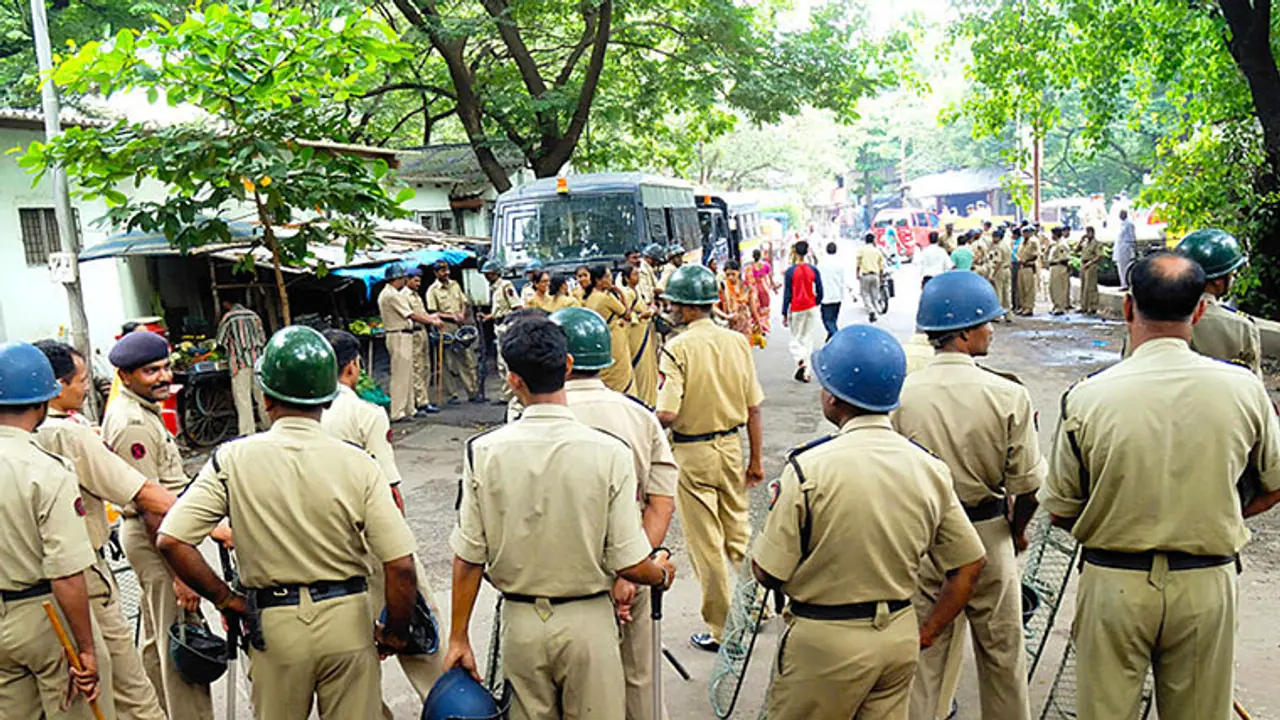According to a 2016 report, close to 3% of the constabulary is being diverted to household errands. Experts believe that this is the result of a colonial hangover where seniors show their power over the juniors. The manpower is often being used for cleaning vessels, washing clothes, bathing dogs, sweeping floors, etc.
A 49-year-old head constable, working with the Karnataka State Reserve Police (KSRP), died after being punched at the temple by his senior officer's son at the entry gate of the KSRP's 9th Battalion Camp in Kudlu village. But this is not a lone case. Cases of abuse in the hands of senior officers is rampant in the police department and even the defence forces.

According to a 2016 report by the Times of India, close to 700 police constables in Tamil Nadu ran errands at seniors' houses. Engaged in non-police 'duties', these 3% of the constabulary are reported to be carrying out household chores of retired IPS and IAS officers and even their relatives in some cases.
This came to light when Tamil Nadu director general of police Ashok Kumar was appointed to probe into Chennai city police commissioner T K Rajendran's claims that there is a shortage of staff which leads up to the worsening image of the police. The city was witnessing a spike in the number of crimes like daylight murders, kidnapping, robbery and chain snatching.
The manpower, it was found, was being diverted to engaging in washing clothes, sweeping and mopping floors,cleaning toilets and utensils, gardening and bathing dogs in the residents of senior police officers.
The logic behind the practice
The show of power has been a norm in the department since the colonial period. Experts call it a colonial hangover since in that era, lower-ranking constables were made to do these errands.
Ironically, the state government and the Centre both invest heavily in training these personnel in maintaining law and order, traffic management and crime detection. In fact, experts believe that using them for menial work is a criminal waste of resource when the department is already short-staffed.
The case in Karnataka
While Tamil Nadu is still facing a crisis in this matter, Karnataka had abolished the orderly system last year itself and had redeployed about 2,500 policemen doing menial work. In fact, it was observed in Karnataka too that the orderlies have often been misused by officials in the absence of clear rules defining their duties. This was noted by BSF director general Prakash Singh.
Singh had further said, "A former Union home secretary, at the time of his retirement, had 16 orderlies working in his house. In districts, where officials have huge bungalows, they rear cows and engage orderlies to maintain them." Criticising the practice, he further said, "Officials, owing to the large number of visitors they get, may need some help. It could be discussed and if need be, group D employees could be engaged for the purpose by the government. But using constables for doing menial work should not be permitted."
A few cases in point
While the functioning of the orderlies is one aspect of the dysfunctional police administration, manhandling this class is another aspect that is fast picking up pace. Many such cases have been highlighted, not just in South India but also in various other parts of the country.
For instance, on April 19, 2016, a police Naik attempted to commit suicide by consuming bleaching powder after an argument with his senior officer. The suicide note he had written was addressed to the Assistant Commissioner of police of the division. The letter said how he was being harassed by the senior and his orderly. Although the authenticity of the charges had not been verified, one can assume that there must be some truth in the allegations.
The case of the KSRP cop is another case in point. Appaji V, a resident of the KSRP quarters was attacked by Roopesh, son of assistant reserve sub-inspector Yerriswamy for question who he was bringing inside the campus. Roopesh hit him in the temple with a bunch of keys that were twirled around his middle finger. He was rushed to Victoria Hospital where he was treated for injuries. He was discharged, but he collapsed on reaching home in the wee hours on Monday. Police has filed a case of assault against Roopesh, his mother and unknown persons in the car. It can now be converted into a case of murder if it is found that Appaji died of internal injuries.
As far as the working conditions of the lower-ranking police officials is concerned, the situation continues to remain grim until and unless there are transparent responsibilities ruled out in the administrative rule book. The punishment on the misuse of police resources by high-ranking officers should be stringent and implemented without fail.
